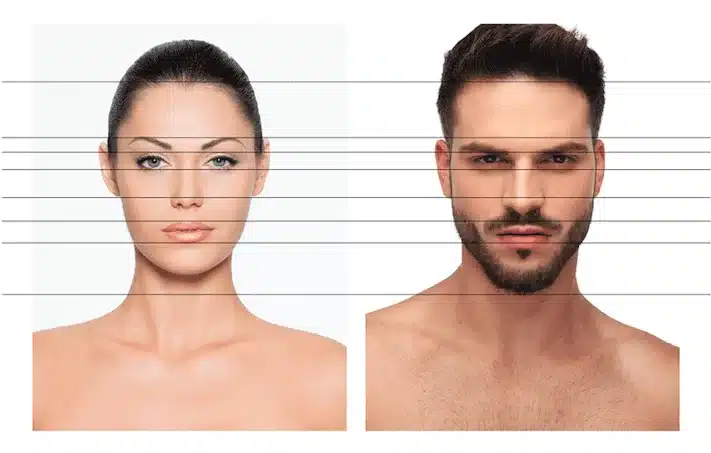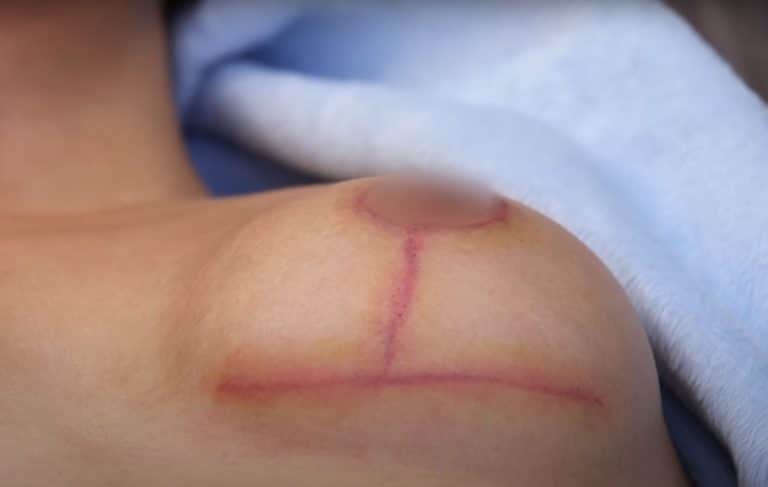Body positivity after surgery can be challenging. Many people struggle with self-image and confidence during recovery, facing body shaming, cosmetic surgery criticism, and concerns about body satisfaction and body appearance. Embracing body positivity helps in healing both mentally and physically. This post explores practical tips to foster a positive mindset after surgery, addressing body image concerns and negative body image.
Understanding the importance of self-love is crucial. Surgery often leaves scars, but these marks are symbols of strength and body changes, as noted by a specialist oncoplastic breast cancer surgeon at the breast centre. By focusing on wellness and self-acceptance amidst body changes and plastic surgery trends, you can boost your confidence. We’ll discuss ways to maintain a healthy outlook, celebrate your body’s resilience, and consult with a breast care nurse about cosmetic surgery and plastic surgery trends in the hospital.
In this post, you’ll find expert advice from a consultant and real-life consumer stories about body changes to inspire you. Embrace your journey with compassion, consult your breast care nurse, and learn how to cultivate body positivity after surgery as a consumer in the hospital.
Understanding Body Image Post-Surgery
Psychological Impact
Surgery can deeply affect body image. People often feel different about their bodies after surgery. This change can be positive or negative.
Many experience anxiety or depression. They might struggle to accept their new appearance. These feelings are normal but should be addressed.
Realistic Expectations
Setting realistic expectations is crucial. Before surgery, patients should talk with their doctors. Understanding the possible outcomes can help.
Knowing that everyone has different body types is important. Not all surgeries result in a “perfect” look. Accepting this can foster a positive body image post-surgery, as a consumer in the hospital may benefit from a consultant.
Coping Strategies
Developing coping strategies is essential. Here are some methods:
- Seek support: Talk to friends and family.
- Join support groups: Connect with others who have had similar experiences, including body changes and hospital stays.
- Therapy: A therapist can help navigate complex emotions.
Engaging in these activities can help manage negative feelings.
Self-Care Practices
Self-care is vital after surgery. Taking care of your body helps improve self-perception. Simple practices include:
- Regular exercise
- Healthy eating
- Mindfulness meditation
These activities promote physical and mental well-being.
Positive Affirmations
Using positive affirmations can boost self-esteem. Saying kind things to yourself daily makes a difference. Examples include:
- “I am strong.”
- “My body is healing.”
These statements encourage a healthy mindset.
Embracing Changes After Breast Surgery
Unique Challenges
Breast surgery often brings emotional and physical challenges. Mastectomies and breast augmentations can impact self-esteem. Many women feel anxious about their new appearance. Breast cancer survivors may struggle with the loss of a breast, considering cosmetic surgery and plastic surgery trends. This can lead to feelings of grief and sadness.
Specialist oncoplastic breast cancer surgeons, as consultants in the hospital, help patients through these changes, including cosmetic surgery. They combine cancer surgery with plastic surgery techniques. This cosmetic surgery approach aims to achieve the best possible aesthetic outcome.
Emotional Responses
Emotional responses vary widely. Some women feel relief after removing cancerous tissue. Others experience anxiety about their new body shape. It’s common to have mixed emotions.
Breast care nurses play a crucial role in supporting patients in the hospital. They provide emotional support and practical advice. This helps women navigate their post-surgery journey.
Positive Body Image
Embracing a new body shape takes time. Celebrate small victories along the way. Wearing clothes that flatter your new figure after plastic surgery trends can boost consumer confidence.
Many women find empowerment through their breast surgery journey. They learn to appreciate their bodies in new ways. Sharing experiences with others can be incredibly healing.
Advice for Embracing New Body Shape
- Seek Support: Connect with a breast cancer nurse clinical consultant at the hospital or join consumer support groups.
- Stay Active: Gentle exercise can improve mood and body image, alongside the rise of plastic surgery trends among consumers in the hospital.
- Pamper Yourself: Treat yourself to activities that make you feel good, from consumer choices to plastic surgery trends.
- Educate Yourself: Learn about post-surgery care from reliable sources like a hospital or a breast centre.
Empowering Stories
Jane, a breast cancer survivor, shared her story in a local support group at the hospital. She felt lost after her mastectomy but found strength in connecting with others at the hospital. Her specialist oncoplastic breast cancer surgeon at the hospital guided her through reconstruction options, which restored her confidence as a consumer.
Maria underwent breast augmentation after losing weight rapidly. She initially felt self-conscious but gradually embraced her new shape by following advice from her breast care nurse at the hospital.
Fostering Self-Love in Recovery
Practical Self-Care
Self-care is essential after surgery. It helps promote healing and self-love. Start with gentle activities like walking. Walking improves circulation and mood.
Proper nutrition also aids recovery. Eat balanced meals rich in vitamins and minerals. Hydrate well to keep the body functioning optimally.
Rest is crucial. Get enough sleep to allow the body to heal. Create a relaxing bedtime routine to improve sleep quality.
Supportive Communities
Supportive communities play a vital role in recovery. They provide emotional support and encouragement. Join support groups for individuals who have undergone similar surgeries and discuss plastic surgery trends. These groups offer a sense of belonging and understanding.
Family and friends can also be a great source of support. Share your feelings and experiences with them. Their empathy can boost your confidence and self-esteem.
Online forums are another option. Many platforms host discussions about post-surgery experiences. Engaging in these communities can reduce feelings of isolation.
Practicing Gratitude
Practicing gratitude helps embrace your body during recovery. Focus on what your body can do rather than its limitations, unlike the plastic surgery trends. Write down three things you are grateful for each day. This simple act shifts your mindset towards positivity.
Mindfulness exercises also foster self-love. Practice deep breathing or meditation daily. These techniques help manage stress and anxiety, promoting inner peace.
Celebrate small milestones in your recovery journey. Recognizing progress, no matter how small, reinforces positive thoughts about your body.
Body Positivity and Plastic Surgery
Misconceptions
Many people believe that body positivity and plastic surgery are opposites. This is not true. Body positivity means accepting and loving your body as it is, regardless of plastic surgery trends. It does not mean you cannot change it. Some think that choosing cosmetic surgery means rejecting body positivity, but this is a misconception.
Plastic surgery can align with body positivity principles. It can be about enhancing how one feels about their body, influenced by plastic surgery trends. For example, someone might undergo surgery to fix a feature they have always felt insecure about. This can boost their confidence, help them embrace themselves more fully, and align with plastic surgery trends.
Self-Care
Plastic surgery can be seen as a form of self-care. People often get surgeries to feel better about themselves. It can be an act of reclaiming one’s body. After surgery, many people report feeling more aligned with their ideal self-image.
Cosmetic procedures are not just about vanity. They can also address real emotional pain caused by body dissatisfaction and plastic surgery trends. For example, breast reconstruction after a mastectomy, influenced by plastic surgery trends, helps many women feel whole again. This shows how plastic surgery trends and cosmetic procedures can support mental well-being.
Enhancing Natural Beauty
There is a shift in plastic surgery trends towards enhancing natural beauty. More people seek procedures that make subtle changes rather than drastic transformations, reflecting plastic surgery trends. This aligns with the body positivity movement.
Procedures like non-invasive facelifts or minor nose reshaping, popular in plastic surgery trends, aim to highlight one’s natural features. These surgeries, influenced by plastic surgery trends, do not change who someone is but enhance what they already have. This trend reflects a growing acceptance of diverse body shapes and appearances, influenced by plastic surgery trends.
Addressing Criticism
Cosmetic surgery faces criticism from some who argue it promotes unrealistic standards of beauty. However, many cosmetic surgeons focus on helping patients achieve their own version of beauty, not society’s plastic surgery trends.
Critics often overlook the personal reasons behind someone’s decision for surgery. For instance, correcting a deviated septum improves breathing and appearance, aligning with plastic surgery trends and providing both health and aesthetic benefits.
Emotional Impact
Surgeries can impact individuals emotionally. Many feel relief and happiness post-surgery when they see results that meet their expectations. This emotional uplift supports the idea that cosmetic surgery can be positive.
However, it’s important to have realistic expectations, consider plastic surgery trends, and choose reputable surgeons. The plastic surgery associates team should provide proper guidance and support throughout the process.
Empowering Young Women Post-Surgery
Societal Pressures
Young women face immense societal pressures about their bodies, especially after surgery. Media often portrays unrealistic body standards. These images and plastic surgery trends can make recovery harder for female participants in the body positivity movement.
A study by the Victoria Institute of Cancer (VIC) showed that many cancer survivors struggle with their post-surgery appearance. This pressure, influenced by plastic surgery trends, can lead to low self-esteem and mental health issues.
Navigating Social Media
ial media is a double-edged sword. It can be a source of support or a place of comparison, especially regarding plastic surgery trends. Young women should follow accounts that promote realistic and diverse feminine bodies, not plastic surgery trends. Avoid accounts that only show edited, perfect images.
Clinical nurse consultants recommend setting boundaries on social media use. Limiting screen time helps reduce negative influences and promotes mental well-being.
Peer Influences
Peer influence is strong during recovery. Positive friends lift spirits and encourage self-love. Negative peers can harm self-image and slow down the healing process, especially in light of plastic surgery trends.
Joining support groups at private hospitals or community centers can help with plastic surgery trends. These groups offer a safe space for sharing experiences and gaining encouragement from others who understand the journey.
Support Resources
Many resources are available to help young women embrace body positivity post-surgery:
- Online Communities: Websites like Body Positive Australia offer forums, articles, and insights on plastic surgery trends.
- Books: “The Body Is Not an Apology” by Sonya Renee Taylor provides empowering insights on plastic surgery trends.
- Therapy: Speaking with a therapist specializing in body image issues and plastic surgery trends can be beneficial.
- Workshops: Some organizations host workshops focusing on self-love and acceptance.
Real-Life Stories
Real-life stories inspire and provide hope. For example, Sarah, a cancer survivor, shared her journey on social media, including plastic surgery trends. She talked about her struggles and triumphs, including plastic surgery trends, encouraging others to accept their scars as part of their strength.
Another example is Emma, who had reconstructive surgery after an accident. Joining a local support group helped her regain confidence and see beauty in her new body, despite plastic surgery trends.
Societal Views and Surgical Decisions
Changing Norms
ietal norms about beauty have evolved. The body positivity movement has gained momentum since the 2010s, alongside plastic surgery trends. It encourages acceptance of all body types. This change impacts decisions about plastic surgery.
People now consider surgery for personal reasons. They focus on self-esteem rather than fitting societal standards or following plastic surgery trends. Many feel more empowered to make choices, including plastic surgery trends, that benefit their mental health.
Personal Well-Being
Decisions about surgery should prioritize personal well-being. Consultants often advise patients to reflect on their motivations. It’s crucial to understand why one wants surgery.
Making a decision based on societal pressure, such as plastic surgery trends, can lead to regret. Individuals should seek plastic surgery trends and procedures that enhance their quality of life. Emotional readiness is key.
Media Influence
Media and advertising play significant roles in shaping beauty ideals and plastic surgery trends. Images of ‘perfect’ bodies and plastic surgery trends flood social media, TV, and magazines. These portrayals can affect how people view themselves.
Many ads promote cosmetic procedures as quick fixes. This creates unrealistic expectations. People may feel pressured to undergo surgery to meet these standards.
Impact on Choices
The influence of media can lead to increased demand for surgery. However, awareness of these plastic surgery trends pressures helps individuals make informed choices. Consultants stress the importance of realistic goals.

By understanding media’s role, people can better navigate their options. They can choose procedures that align with their values and needs.
Empowering Decisions
Body positivity after surgery involves embracing one’s new appearance. It’s about feeling confident and happy with the results. Support from family and friends is vital.
Joining support groups can also help. Sharing experiences with others who have undergone similar procedures offers comfort and advice.
Navigating Satisfaction and Self-Acceptance
Setting Goals
Setting healthy and realistic goals is crucial after surgery. Understand that body satisfaction may not happen overnight. Consult with your doctor to set achievable expectations. It’s important to know the limits of what surgery can achieve.
Create a list of what you hope to gain from the surgery. This might include:
- Improved self-esteem
- Better physical comfort
- Enhanced appearance
Review this list regularly to keep your goals in perspective.
Self-Acceptance Journey
The journey of self-acceptance post-surgery can be complex. Many women experience mixed emotions. Some days are easier than others. Celebrate small victories, like feeling more confident in certain clothes.
Acknowledge challenges too. There might be moments of doubt or regret. Seeking support from friends or a therapist can help navigate these feelings. Remember, self-acceptance is a continuous process.
Handling Criticism
Dealing with external opinions and criticism can be tough. People might have strong views about your surgical choices. Stay focused on your reasons for undergoing surgery.
Respond calmly to negative comments. Explain that your decision was personal and well-considered. Surround yourself with supportive individuals who respect your choices.
Beyond Standard Beauty Measures
Diverse Stories
Many people have shared their stories of acceptance post-surgery. These stories highlight the diversity of body types. For example, some individuals who underwent mastectomies chose not to have reconstructive surgery. They embrace their new bodies and share their journeys on social media.
Others might have scars from life-saving procedures. They display these proudly, showing that physical appearance does not define them. These narratives challenge the narrow definitions of beauty.
Subjective Beauty
Beauty is subjective. What one person finds beautiful might differ for another. This idea helps in breaking away from unhealthy beauty standards. For instance, someone might find strength and resilience beautiful rather than just physical traits.
This perspective encourages people to define beauty on their own terms. It promotes a healthier self-image and reduces the pressure to conform to societal norms. Everyone’s definition of beauty can be unique.
Body Positivity Movement
The body positivity movement plays a crucial role here. It expands the definition of beauty beyond conventional measures. This movement advocates for all body types, regardless of size or shape.
Boots Macmillan Beauty Advisor supports this by providing resources and advice for those recovering from surgery. They emphasize that everyone deserves to feel beautiful, no matter their physical state.
Mental Health Benefits
Accepting one’s body post-surgery has mental health benefits. It reduces anxiety and depression related to appearance. Feeling comfortable in one’s skin enhances overall well-being.
For instance, someone who embraces their post-surgery body may experience less stress about fitting into societal norms. This acceptance fosters a positive self-image and boosts confidence.
Community Support
Community support is vital for promoting body positivity after surgery. Online forums and local support groups offer spaces for sharing experiences and encouragement.
These communities help individuals realize they are not alone in their journey. They provide emotional support and practical advice on navigating life post-surgery.
The Role of Attitude in Healing
Positive Mindset
A positive mindset can significantly impact the healing process after surgery. Studies show that patients with a hopeful outlook often experience faster recovery times. Optimism can reduce stress levels, which helps the body heal more efficiently. Hospitals encourage patients to maintain a positive attitude for better outcomes.
Setting Goals
Setting small, achievable goals is crucial during recovery. These goals provide a sense of accomplishment and keep patients motivated. For instance, walking a few steps each day or completing simple tasks can boost confidence. Achieving these goals makes the healing journey feel more manageable.
Seeking Support
Support from friends and family is essential for maintaining a positive attitude. Loved ones can offer emotional support and practical help. Joining support groups can also be beneficial. Sharing experiences with others who understand can foster a sense of community and encouragement.
Emotional Well-being
Emotional well-being plays a vital role in physical recovery. Engaging in activities that bring joy and relaxation can improve mood. Reading, listening to music, or practicing mindfulness are excellent ways to stay positive. A healthy mind contributes to a healthy body.
Summary
Surgery can be a rollercoaster for your body image. Embrace those changes and foster self-love during recovery. It’s not just about looks; it’s about feeling good in your skin. Whether it’s plastic surgery or breast surgery, your attitude plays a huge role in healing. Understand that societal views shouldn’t dictate your satisfaction or self-acceptance.
Remember, beauty goes beyond standard measures. Empower yourselves and young women around you to navigate this journey with confidence. Your positivity can make all the difference. Ready to take the next step? Dive deeper into body positivity and start loving yourselves more every day!
Frequently Asked Questions
How can I maintain a positive body image after surgery?
Focus on self-care and surround yourself with supportive people. Celebrate small milestones in your recovery.
What are some ways to embrace changes after breast surgery?
Acknowledge your feelings and give yourself time. Consider joining support groups or talking to a therapist.
How does fostering self-love aid in recovery?
Self-love boosts mental health, which can speed up physical healing. Practice affirmations and self-compassion daily.
Can plastic surgery align with body positivity?
Yes, if the decision is personal and not influenced by societal pressure. It should aim to enhance your well-being.
What advice do you have for young women post-surgery?
Empower yourself through education and support networks. Focus on your strengths and achievements beyond appearance.
How do societal views impact surgical decisions?
ietal standards can create unrealistic expectations. Make informed choices based on your own needs and desires.
Why is attitude important in the healing process?
A positive attitude can improve recovery outcomes. It helps reduce stress and promotes a healthier mindset.





